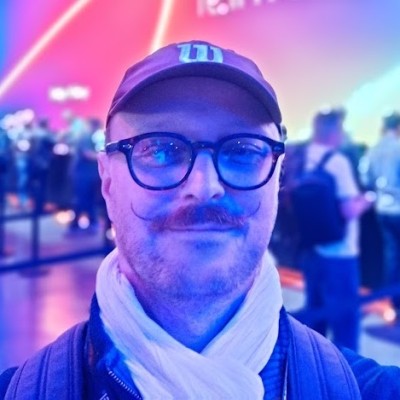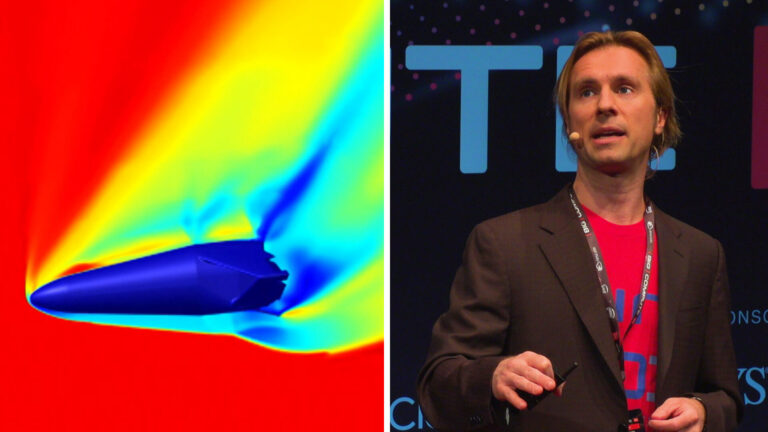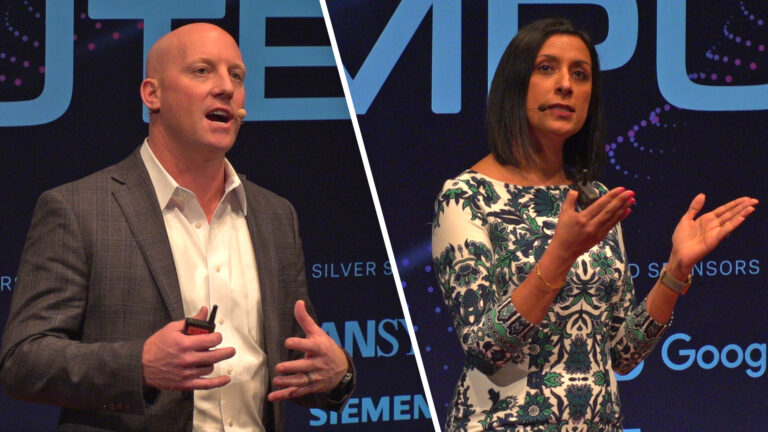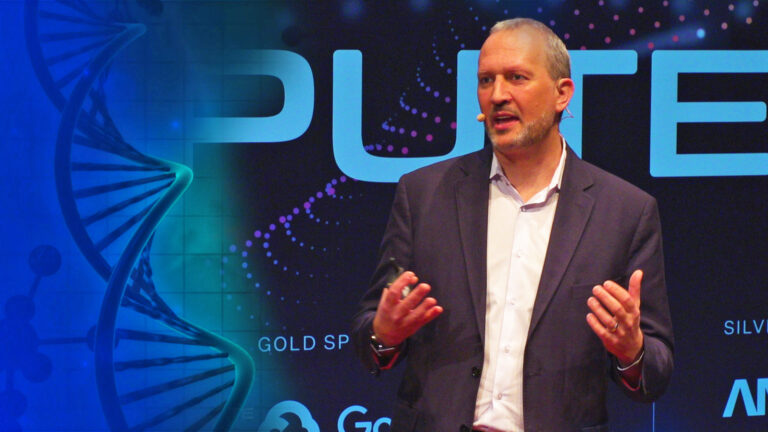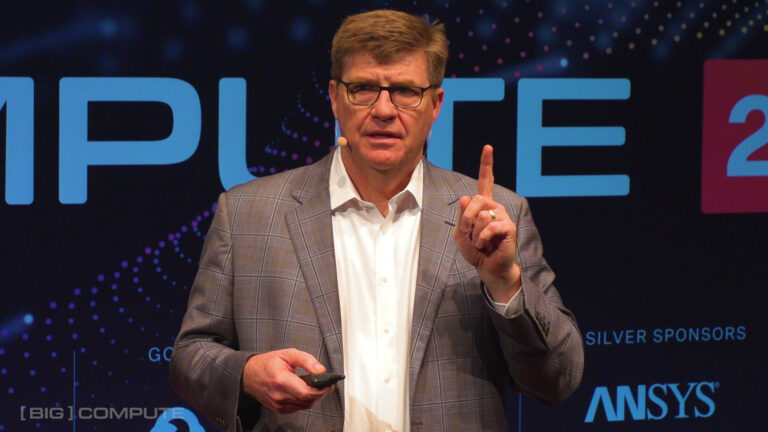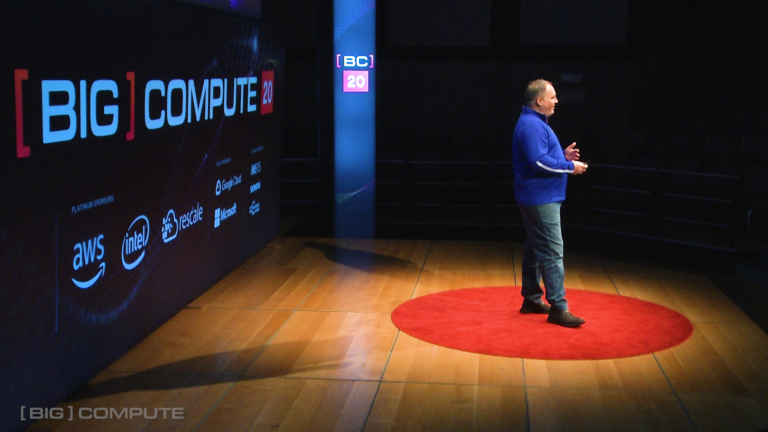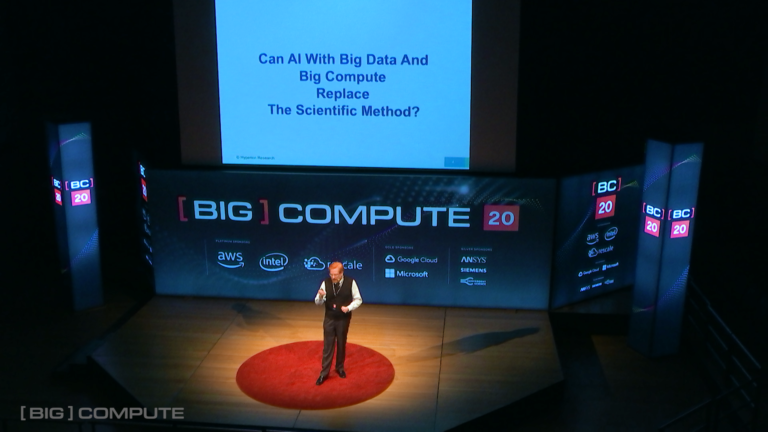HPC for Environmental Services
Speaker:
Please welcome to the stage. Head of Cloud and Data for Veolia, Julien Desmettre..
Julien:
It’s great to be here this morning in front of you, lovely stage, to speak about the story they use age of high performance computing at Veolia. Does anybody know Veolia as a business? One, two, three, four. Okay. Who speaks French? One, two, three, nobody. So my colleague Yannick Dullars also is here. So thank you for coming. Yannick is, was a great master of our HPC and the success of our transformation project to Rescale is part of his success. So thank you very much. What is Veolia? Yeah. Veolia is the global leader in optimized resource management. It started 167 years ago. It’s an old French company at the time. There was no it no HPC. It was stone-age for it. But today it represents 170,000 people all over the world in more than 50 countries. And we share a great, beautiful, fascinating ambition within the world.
Julien:
Also within the world means to minimize the impact on the environment on, in three domains, which are, or as three businesses, water waste and energy. For example, we work at all steps of the water life cycle from production distribution collection treatments recycling. We distribute 100 million people with a, we provide 100 million people with drinking water all over the world and we deliver waste water services for more than 60 million people. We also transform for example, 50 million metric, tons of waste every year in energy and similarly, raw materials. And we manage heating and cooling networks in more than 560 cities in the world. It also covers green and LG productions
Julien:
HPC. We saw it yesterday and this morning is presenting many activity fields, aerospace, astrophysics, automotive, life science, medicals, finance, and it is also key in research and innovation for environment services and rely on the inventiveness, the expertise, expertise, and the skills all over the world of Veolia to create new solutions, to, to match the global environmental objectives of Veolia. For example, water and water cycle management. What a treatment wastewater management waste management recycle raw materials, energy efficiency in buildings and in industries and smart cities. This is or major topics of innovation today. Innovation is in DNAs, it’s in the DNA of Veolia. And today we had this, this was our a former HPC.
Julien:
It is a job ready. We have used it for several years and, but today rest in peace because the hardware was and of support. The software’s also when F of support or end of life, the operating system was not always fully updated, not all the security patches or it teams too much time to manage it so we could not deliver a good service level to, or users to, or customers. Moreover, it was clearly underused, only 12% of range of use age, but we bought it for 100% CPU. So it was B who is ready to pay for some things that only runs 12% of the time. I would be happy if I work 12% of my time in slips the rest of the day, but is my manager agree? Not sure it’s the same with this HPC. Moreover, the workloads different workloads at the same times were difficult to predict and this was not scalable.
Julien:
So we had, we had to find and also a solution to accelerate the pace of or innovation. And thanks to rescale today, or APC looks like this one, a laptop, simple laptop. It means that we have migrating all our scientific software’s to rescale. We have centralized or licenses on risk scale. And today the access to HPC platform is secured because it is connected to a internal, single sign on solution for the authentication we can access or HBC service from anywhere in the world, from France, from the us, from our office, from home, from holidays, from the airport. And even yesterday I saw Yanik push a simulation from his mobile phone here. So it’s available from any device, also mobile phone Chromebooks, iMac work, professional workstation, Microsoft PCs, everywhere, any device. And it’s also available at anytime. Anytime means during working hours at weekends with the same service level at Veolia, such as service has a name it’s set ahead compliant.
Julien:
You can see the logo on the merch on the left, set away, stands for secure any time, anywhere, any device. And it’s part of the strategy. And so one pillar of the, or it strategy all or services, application innovations, and as compliance. And that’s the case with our new platform of high performance computing regarding his architecture, it’s look like that. It’s a very high level architecture. Valium started his journey to the cloud five years ago by choosing two major partners, AWS and Google cloud. So we have migrating all our infrastructure’s application services to the public cloud on SAS solutions, if it was relevant or to pass and yes services, this infrastructure, these platforms are available from the internet, but also from the internal network with direct clienteling direct connect links, VPN VPC, pairings, and every sings is interconnected. So for example, applications running on AWS can use the license server on rescale project that have been developed on Google can use the service of Freescale. So users can be on the internet, can be on the internal network with the same level of service and access the same services. And also rescale is moved to cloud compliant because it relies on the public clouds and public workloads to deliver high performance computing.
Julien:
On Rescale, there are, I think, more than 370 applications that are natively available. We use some of them, not all. So you can see the application, you know, probably some of them and CS MATLAB, Python, R studio Dymola, everything’s centralized on this platform. And the interface is also very intuitive. Very I’ve gone to make, we can manage the authorization more simpler than before, and we can manage it so budgets for each project. So it’s really changed the way we manage research and innovation project between a full sets cloud native HBC, compared to a legacy on premise HPC Research and innovation at Veolia covers many scientific aspects, scientific fields. We don’t always know that Veolia works studies mixed studies on mechanics, solids fluids, gas, biology, DNA to innovate and to find new solutions on or unfair Montel problems and to do so to do that, we need machine learning and deep learning models that runs on the efficient infrastructure.
Julien:
Let’s see now some examples of what we’ve done with our HPC concrete example. So the first one is regarding a wastewater network, a wastewater network generate lots of data. They can come from sensors, then a financial con financial aspect of the contract membranes, visual control, et cetera, et cetera. And all these data are difficult to correlate. So we have developed a new model that is able to simulate and anticipate the reputation planning of the wastewater network, not for the day after or for the next week, but for the next 20 years. Because at Veolia, when we sign such a contract with municipalities, it’s a long term contract, eight, 12, 20 years. So the better we anticipate how’s the status of the network will change. If we have to repair some kind of part of the network, we can anticipate how much it will cost, then we will be able to make better offer. Does it mean to see palliatives? So the municipalities are more satisfied. The citizens are more satisfied. And also there is a better of your mental footprint because there will be fewer leaks on the network. Yes.
Julien:
The signal and example is about energy and waste. He sees a result of a CFD in a circular economy approach. Incinerators of waste can provide municipality and industrials with heating and electricity. This is cogeneration. This was a question of the couch yesterday, help you answer this question correctly. And with this kind of model we have developed, we are able to optimize the structure of the plant. So different pieces of the plant. We are able to optimize the combustion process because the CFD is, is in this example is about the condition gas flow speed. So we are able to optimize the Singh and we are also able to maximize the production of electricity and hitting that is delivered to the citizens or to the industries. You probably have these kind of plants near your, you know, your city.
Julien:
The third example is about plastic waste treatment with or partners. We have developed a service with robot that thanks to deep learning algorithm is able to detect, just shape the size, the type of plastic that is rolling on a conveyor belt. So we are in a waste treatment plant, lots of waste arrive every day, probably your rate, your waste arrived there. And once the plastics assaulted then analyzed by high definition cameras that detect what kind of plastic this, and after detecting is there is an articulated arm that sought so different kinds of plastics, select them, sods them in different content areas for specific treatments, different kinds of plastics, different treatments. That’s very important. It allows us to make soup on dairy, warmer materials of better quality to is that allows us to open new businesses. And this kind of plastics also treatments treatment, sorry, is more cost efficient because the computer is going faster that a human being.
Julien:
So with this kind of platform, HPC platform, Veolia is now able to his pace of innovation. That’s great. And I was asked questions is what would we do if we had infinite resources? So if you need resources is maybe infinite budgets who has infinite budget is my boss agree. I’m not sure but infinite resources in high performance computing. Okay. We have almost infinite computing resources with the public cloud. So that’s great. Or algorithm can be more complex. We can analyze larger data sets or results can be more precise, more accurate with better confidence. That’s great.
Julien:
But the problem is we don’t have infinite resources. We only have one earth and the development of innovation digital over consumption is not sustainable in regard to its needs for energy and raw materials. And Veolia is a key actor to answer, to try to answer these questions, abundance scarcity science, you have chemical lows, you have physical laws. They are there for years for the beginning of humanity, beginning of the universe. And the good point is that they take over economic beliefs and dogmas. And that’s a good thing for, for us because we have levers for action to find new solutions to a more sustainable world on the infrastructure. Thanks to the performance and availability of the cloud providers. Today. They invest billions of dollars every year in producing green energy for their data centers in designing new computers, new servers that are more, that we consume less energy on our developments. Also, we can imagine developments that use a good level of resources no more, no less. And in our habits also because the more we have, the more we consume that habit, we will have to change because we only have one planet and we cannot support the space of innovation. This all services, digital services that are everywhere today without a little bit of scarcity.
Julien:
Did you tell is everywhere in your business at home, in your institution? Everybody has Netflix and Google Alexa. So digital is everywhere and generates greenhouse gas emissions and greenhouse gas emissions are exploding. So we have to change our habits. We have the chance to have these partners to work with. Like it will you as like GCP, like Izzar, and also like Rescale to find new solution based on this new kind of infrastructures that, or propose today at Veolia, to understand the needs, to find a new innovation solution, innovative solution, and to make the world better for the following years to come. That’s our purpose. Thanks a lot.
